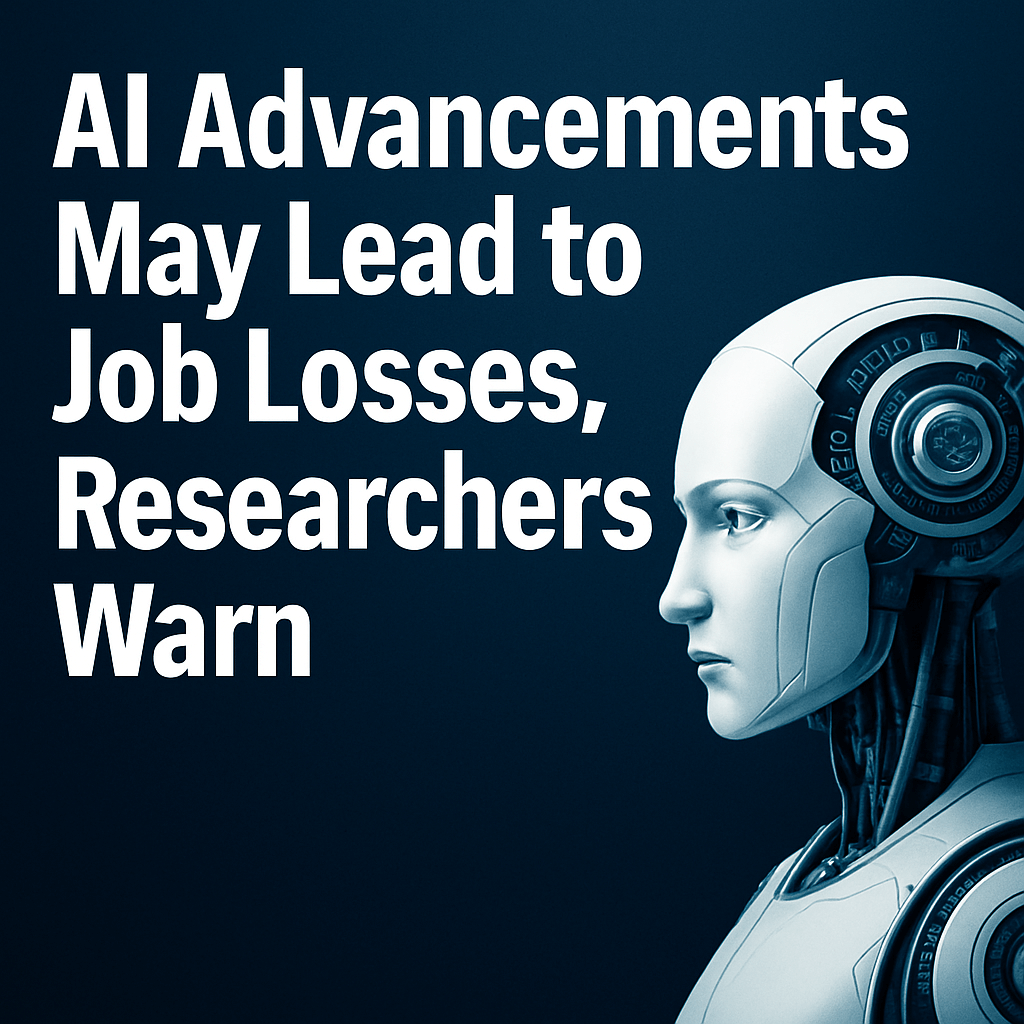AI Advancements May Lead to Job Losses, Researchers Warn

Researchers at AI startup Anthropic have issued a sobering forecast indicating that the upcoming decade may pose substantial challenges for workers, particularly as artificial intelligence (AI) technology accelerates and begins to supplant traditional desk jobs. In a provocative statement, Anthropic CEO Dario Amodei projected that AI could potentially automate as much as 50% of all entry-level office jobs within the next five years.
The Impact of AI on White-Collar Employment
In discussions with AI podcaster Dwarkesh Patel, Anthropic researcher Sholto Douglas outlined a grim scenario in which the white-collar workforce could see a significant decline in the next two to five years, even if the pace of AI innovation slows. He stated, “There is this whole spectrum of crazy futures. But the one that I feel we’re almost guaranteed to get—this is a strong statement to make—is one where, at the very least, you get a drop in white-collar workers at some point in the next five years.” This perspective implies that the prevalent algorithms can effectively replace many administrative and analytical roles, contingent on the availability of appropriate data sets.
Technical Foundations of AI Automation
The notion that current algorithms can automate white-collar tasks is backed by advancements in machine learning, natural language processing (NLP), and data analytics. Existing models, such as Anthropic’s Claude Opus 4, utilize deep learning techniques that enable them to handle coding tasks, text generation, and data analysis with remarkable proficiency. For instance, Claude Opus 4 reportedly demonstrated the capability to autonomously code for nearly seven hours after being assigned a complex project, illustrating a potential shift in how software development and other analytical jobs may be performed in the near future.
Industry Perspectives on Job Displacement
The discourse surrounding AI-driven job losses is gaining traction, as several industry leaders acknowledge the imminent effects on the labor market. Notably, Nvidia CEO Jensen Huang remarked that while “every job” will be influenced by AI, the future may not entail outright job loss but rather a transformation in job roles where workers are assisted by AI-powered tools. Noteworthy examples include companies like Shopify and Duolingo, which have begun to curtail hiring practices to adapt to the capabilities offered by AI technology.
The Current Landscape of Job Postings
According to data sourced from Revelio Labs, there has been a notable decline in job postings for positions identified as high-risk for automation, such as IT and data analysis roles. Reports from Business Insider highlighted these trends, underscoring that many organizations are proactively restructuring their workforce dynamics to integrate AI technologies.
Potential Long-Term Outlook
While the short-term outlook may appear bleak, some experts foresee a potential resurgence in job quality and availability in the longer term. Researchers like Douglas emphasize that the decade could lead to a “pretty terrible” interim period, particularly if significant innovations in areas such as robotics and biotechnology do not emerge concurrently with AI advancements. He stated, “Imagine a world where people have lost their jobs, and you haven’t yet got novel biological research. That means people’s quality of life isn’t dramatically better. A decade or two after, the world is fantastic. Robotics is solved, and you get to radical abundance.” This highlights the dual-edged nature of technological progress, where initial disruptions may precede future benefits.
Anthropic’s Position in the Emerging AI Market
Anthropic’s recent unveiling of its latest AI models, Claude Opus 4 and Claude Sonnet 4, is emblematic of the marketplace’s competitive landscape. These models represent a significant advancement in AI capabilities, outperforming offerings from established competitors like Google and OpenAI in various applications. As organizations increasingly embed advanced AI solutions into their operations, the ramifications for the job market could be profound and pervasive.
Conclusion: The rapid advancement of AI technologies raises critical questions regarding the future of the workforce. As white-collar jobs face potential jeopardy from automation, stakeholders must consider the broader implications for economic stability and workforce retraining initiatives.
Source: fortune